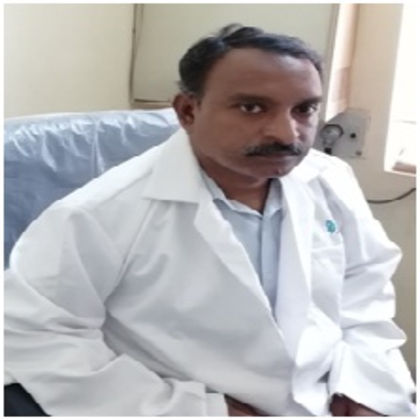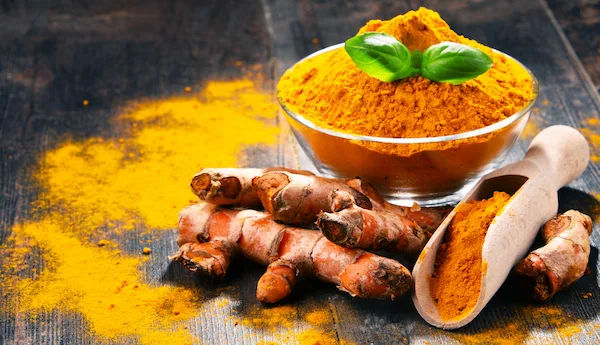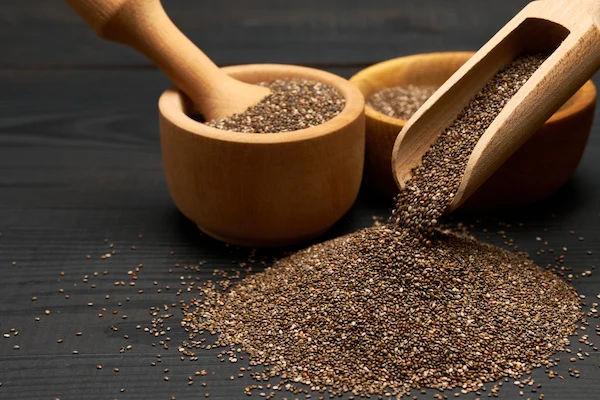Understanding Rotator Cuff Injury
Learn about rotator cuff injuries, including common causes, symptoms, and treatment options. Understand how proper care and rehabilitation can restore shoulder strength and improve mobility.

Written by Dr. M L Ezhilarasan
Reviewed by Dr. Shaik Abdul Kalam MD (Physician)
Last updated on 13th Jan, 2026

Introduction
Shoulder pain can be frustrating and limit your daily activities, from lifting groceries to combing your hair. One common cause of shoulder pain is a rotator cuff injury. If you’ve been experiencing persistent shoulder discomfort, weakness, or difficulty moving your arm, you might be dealing with this issue.
This article will help you understand what a rotator cuff injury is, its symptoms, causes, and treatment options. We’ll also share simple tips to manage the pain and prevent further damage.
What is a Rotator Cuff Injury?
Your rotator cuff is a group of four muscles and tendons that surround your shoulder joint, keeping the head of your upper arm bone firmly in the shoulder socket. These muscles help you lift and rotate your arm.
A rotator cuff injury occurs when one or more of these tendons or muscles get damaged. This can happen due to:
Tears (partial or complete)
Tendinitis (inflammation of the tendons)
Bursitis (inflammation of the fluid-filled sac near the joint)
Common Symptoms
If you have a rotator cuff injury, you may experience:
Pain (especially when lifting or lowering your arm)
Weakness in the shoulder
Difficulty reaching behind your back or overhead
Aching at night, making it hard to sleep
Clicking or popping sounds when moving your arm
What Causes Rotator Cuff Injuries?
Several factors can contribute to a rotator cuff injury:
1. Age-Related Wear and Tear
As we age, tendons weaken, making them more prone to tears.
2. Repetitive Movements
Activities like painting, swimming, or playing tennis can strain the rotator cuff over time.
3. Sudden Injury
Lifting something heavy or falling on an outstretched arm can cause an acute tear.
4. Poor Posture
Slouching or hunching forward can put extra stress on the shoulder.
5. Lack of Blood Supply
Reduced blood flow to tendons (common in older adults) slows down healing.
Consult Top Specialists
How is it Diagnosed?
If you suspect a rotator cuff injury, a doctor will:
1. Ask about your symptoms and medical history.
2. Perform a physical exam to check range of motion and strength.
3. Recommend imaging tests like:
X-ray (to rule out bone problems)
Ultrasound or MRI (to see soft tissue damage)
Treatment Options
The right treatment depends on the severity of your injury.
1. Non-Surgical Treatments
Rest & Activity Modification: Avoid movements that worsen pain.
Ice & Heat Therapy: Ice reduces swelling; heat eases stiffness.
Pain Relievers: Over-the-counter medications like ibuprofen can help.
Physical Therapy: Strengthening exercises improve flexibility and support.
Steroid Injections: Reduce inflammation in severe cases.
2. Surgical Treatments
If the tear is large or doesn’t improve with therapy, surgery may be needed.
Common procedures include arthroscopic repair (minimally invasive) or open surgery.
Tips for Managing Rotator Cuff Pain
1. Strengthen Your Shoulder
Gentle exercises like pendulum stretches and resistance band workouts can help.
2. Improve Posture
Sit and stand straight to reduce shoulder strain.
3. Avoid Overhead Activities
Limit lifting heavy objects above shoulder level.
4. Sleep Smart
Use a pillow to support your arm if sleeping on the affected side.
5. Warm-Up Before Exercise
Stretching prevents sudden injuries.
When to See a Doctor?
Consult a specialist if:
Pain lasts more than a few weeks
You can’t lift your arm at all
The shoulder feels weak or numb
Prevention Tips
Exercise Regularly: Strengthen shoulder muscles.
Use Proper Technique: Whether lifting weights or playing sports.
Take Breaks: Avoid repetitive strain.
Conclusion
A rotator cuff injury can be painful, but with proper care, most people recover well. If you’re experiencing persistent shoulder pain, don’t ignore it—early treatment can prevent further damage.
You can book a consultation with an orthopaedic specialist on Apollo 24|7 for expert advice and personalised care.
Consult Top Specialists
Consult Top Specialists

Dr Anika Sait
Orthopaedician
5 Years • MBBS, MS (Ortho) MRCS (Edin.) Diploma in sports medicine (International Olympic Committee)
Bengaluru
Apollo Hospitals Jayanagar, Bengaluru

Dr. Deepthi K N
Orthopaedician
6 Years • MBBS, Diploma in Orthopaedics , DNB Orthopaedics
Bengaluru
Apollo Hospitals Jayanagar, Bengaluru

Dr. Aarpith Kamath
Orthopaedician
7 Years • MBBS, MS Orthopaedics, Fellowship in Primary Hip And Knee Arthroplasty , Depuy Synthes ,Apollo Hospital,Jayanagar ,International fellowship in Hip and Knee Arthroplasty ,Wellton Hospital, Seoul ,South Korea
Bengaluru
Apollo Hospitals Jayanagar, Bengaluru

Dr. Bhanu Prakash Reddy Rachamallu
Orthopaedician
24 Years • MBBS , D'ORTHO, DNB (ORTHO), Mch (ORTHO), Fellow in ARTHROPLASTY
Hyderabad
Apollo Hospitals Jubilee Hills, Hyderabad
(75+ Patients)

Dr. B Sreedhar
Orthopaedician
23 Years • MBBS., D`Ortho D.N.B
Aragonda
Apollo Hospitals Chittoor, Aragonda
(25+ Patients)




